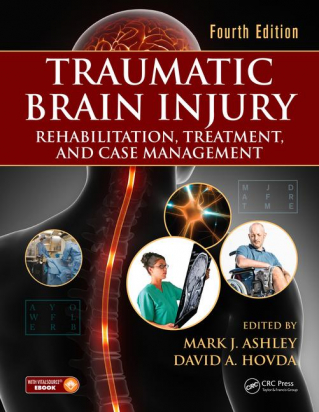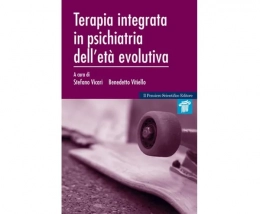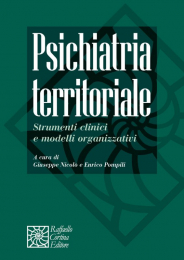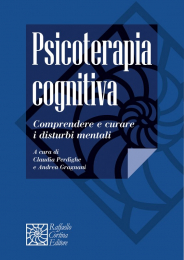Non ci sono recensioni
DA SCONTARE
Features
- Presents algorithms that are independent of any platform but with solution included
- Demonstrates methods with instructor lecture slides and scripts
Summary
In the last decade neuroscience has matured at a remarkable pace, shedding a far more exacting light on mechanisms of neurophysiology, pathophysiology of injury, neuroendocrinology, neuro-immunology, neuroplasticity, neuropharmacology and neurodegenerative processes. Individuals with acquired brain injury are treated earlier and now achieve far better recovery than in the past.
The fourth edition of this text constitutes a continuation of 20 years of coverage of traumatic brain injury, and broadens the discussion of acquired brain injury. Within TBI, the paradigm shift from an injury occurring at a point in time to a disease entity of a chronic nature is changing the discussion of diagnosis, management, treatment and outcome assessment. Disease specification that differentiates TBIs by the mechanism of injury, the exact nature of the injury, the extent of injury, presence of co-morbidities and their exact nature, gender, age, race, and genome are emerging as crucial. There was a time when cancer was an undifferentiated disease. Disease differentiation has consequently impacted diagnosis, treatment and outcome.
This text is intended to serve as a ready reference tool, contributing to the professional growth of each reader, and stimulating innovation and research. It also promotes the continued refinement in the management of diseases of acquired brain injury.
4th EDITION TABLE OF CONTENTS
NEUROSCIENCE
– Mark J. Ashley, Grace S. Griesbach, David L. Ripley, Matthew J. Ashley
– Thomas C. Glen, Richard L. Sutton and David A. Hovda
– Mayumi Prins
– Robert P. Lehr
– Corina O. Bondi & Anthony E. Kline
– Mark J. Ashley, Jessica G. Ashley & Matthew J. Ashley
– Dorothy A. Kozlowski
– Fernando Gomez-Pinilla
– Richard E. Helvie
– Neil G. Harris and Jessica G. Ashley
– Timothy W. Ellis and Jonathan Lifshitz
– Zachary Jacokes, Avnish Bhattrai, Carinna Torgerson, Andrew Zywiec, Sumiko Abe, Andrei Irimia, Meng Law, Saman Hazany, and John Darrell Van Horn
MEDICAL
– Yelena G. Bodien, Sabrina R. Taylor, and Joseph T. Giacino
– Deborah L. Doherty
– Ronald A. Browning and Richard W. Clough
–Gregory J. O’Shanick and Ryan McQueen
– Mark J. Ashley, Matthew J. Ashley
– Anne C. McKee
– Theresa D. Hernández, Sudha S. Tallavajhula, Kristina Legget, and Paul M. Levisohn
THERAPY
– Mark J. Ashley
– Jason W. Krellman, TheodoreTsaousides, and Wayne A. Gordon
– Craig S. Persel and Chris H. Persel
– Penelope S. Suter
– Mark J. Ashley, Rose Leal, Zenobia Mehta, Jessica G. Ashley, Matthew J. Ashley
– Fofi Constantinidou and Robin D. Thomas
– Velda L. Bryan, David W. Harrington, Michael G. Elliott
– Mark J. Ashley, Joe Ninomiya, Jr., Amy Berryman, Karen Rasavage
CASE MANAGEMENT
– Jay M. Uomoto
– Jay M. Uomoto, Sarah M. Wilson, Rhonda M. Williams, and Leigh A. Randa
– Grace S. Griesbach, Mark J. Ashley, Alan Weintraub
– Roberta DePompei and Janet Siantz Tyler
– Mark J. Ashley and Susan M. Ashley
- Bioscience Indications for Chronic Disease Management and Neuromedical Interventions Following Traumatic Brain Injury
- The Neurobiology of Traumatic Brain Injury
- Repeat Traumatic Brain Injury Models
- Neuroplasticity and Rehabilitation Therapy
- Environment Enrichment: A Preclinical Model of Neurorehabilitation for Traumatic Brain Injury
- Neuroanatomy of Basic Cognitive Function
- TBI Rehabilitation: Lessons Learned from Animal Studies about Mechanisms, Timing and Combinatorial Approaches
- Diet and Exercise Interventions to Promote Metabolic Homeostasis in TBI Pathology
- Disruptions in Physical Substrates of Vision Following Traumatic Brain Injury
- Potential Utility of Resting State fMRI-Determined Functional Connectivity to Guide Neurorehabilitation
- TBI and Sensory Sensitivity: Translational Opportunities
- The Neuroimaging Challenges in Hemispherectomy Patients
- Clinical Management of the Minimally Conscious State
- Neuropharmacologic Considerations in the Treatment of Vegetative State and Minimally Conscious State Following Brain Injury
- Clinical Management of Pituitary Dysfunction After Traumatic Brain Injury – Adam H. Maghrabi, Brent E. Masel, Randall J. Urban, and David L. Ripley
- Neurotransmitters and Pharmacology
- Pituitary Dysfunction After Traumatic Brain Injury – Tiffany Greco
- Increasing Physiologic Readiness to Improve Functional Independence Following Neurotrauma
- Assessment and Management of Mild Traumatic Brain Injury
- Chronic Traumatic Encephalopathy (CTE)
- Posttraumatic Epilepsy and Neurorehabilitation
- Evaluation of Traumatic Brain Injury Following Acute Rehabilitation
- Neuropsychology following Brain Injury: A Pragmatic Approach to Outcomes, Treatment, and Applications- James J. Mahoney, III
- Neuropsychological Interventions Following Traumatic Brain Injury
- The Use of Applied Behavioral Analysis in Traumatic Brain Injury Rehabilitation
- Rehabilitation and Management of Visual Dysfunction Following Traumatic Brain Injury
- Remediative Approaches for Cognitive Disorders After TBI
- Principles of Cognitive Rehabilitation in TBI: An Integrative Neuroscience Approach
- Management of Residual Physical Deficits
- Undertaking Vocational Rehabilitation in TBI Rehabilitation
- The Contribution of Neuropsychological Evaluation to Traumatic Brain Injury Rehabilitation
- Neurobehavioral Consequences of Mild Traumatic Brain Injury in Military Service Members and Veterans
- Issues in Aging Following Traumatic Brain Injury
- Children and Adolescents: Practical Strategies for School Participation and Transition
- Long-Term Discharge Planning in Traumatic Brain Injury Rehabilitation
- Patients’ Rights and Responsibilities, Health Care Reform and Telehealth: Ethical Considerations
– Thomas R. Kerkhoff and Stephanie L. Hanson




